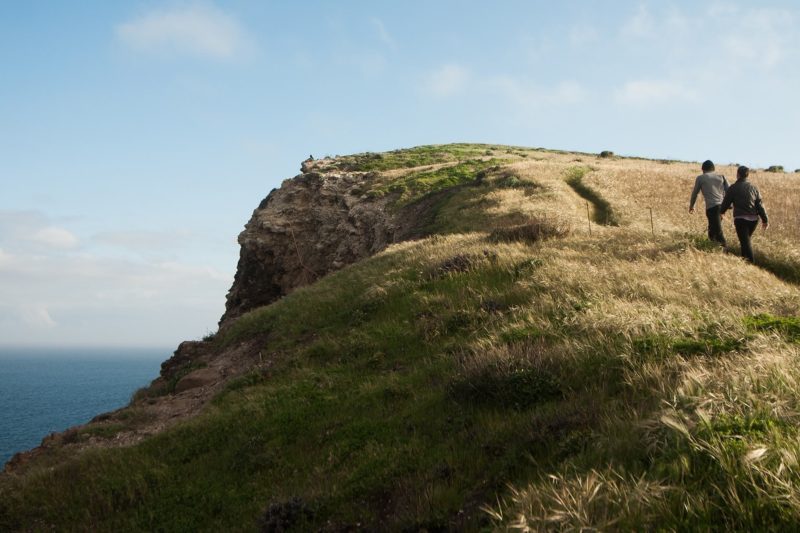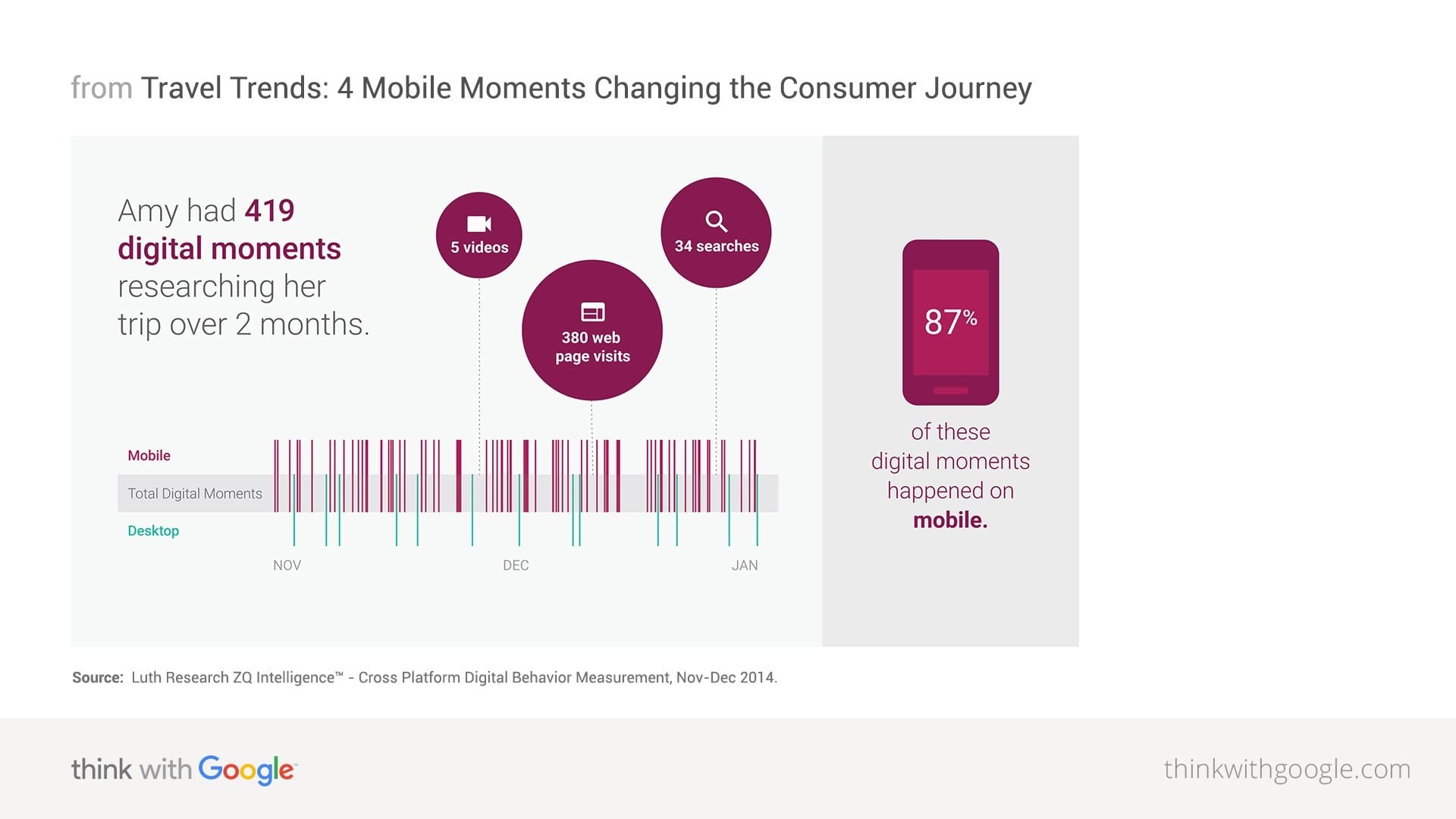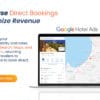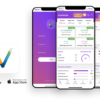Travel trends: 4 mobile moments changing the consumer journey
August 1, 2019
by Google

Travelers face a dizzying number of decisions in the process of planning a trip. Increasingly people are turning to their smartphones for immediate answers to their travel questions. Lisa Gevelber, Google’s VP of marketing, shares how travel marketers can keep up with these new mobile behaviors.
Last summer, my family and I went to see the Women’s World Cup final in Vancouver. I was lucky enough to get a ticket before they sold out. Now we needed a place to stay. I grabbed my phone and did a search and found a perfect place for us—the Sheraton Wall Centre—an easy walk to the stadium and right near one of the best food streets in Vancouver, Davie Street. And while we didn’t know it then, it was definitely a lucky pick—it turned out the U.S. Women’s team was also staying at this hotel.
Looking for this hotel on my phone is what we call a micro-moment, an intent-rich moment when someone acts on a need. At Google, we call these micro-moments the I-want-to-know moments, I-want-to-go moments, I-want-to-do moments, or I-want-to-buy moments.
In the past year, conversion rates have grown 88% on mobile travel sites.
In a 15-minute walk with a smartphone, I did what used to take hours of research in front of a desktop computer. And the reason I was able to do this so seamlessly was because when I searched, brands were there to meet me in my moment of need.
New mobile behaviors create a new consumer journey
With travel, micro-moments happen throughout the consumer journey. They start when people begin dreaming of a trip. And they happen across planning, booking, and even during the actual traveling.
When these moments happen, we reach for the device nearest to us for answers—and that device is increasingly a smartphone. In the past year, mobile’s share of travel visits has grown by 48%1, and, because mobile is helping people find what they want more quickly, time spent per session on mobile travel sites is down 7%, while mobile web conversion rates for travel sites have grown 88%.2
These data points are for travel sites across the web overall. On Google.com, mobile queries just within the travel category have increased more than 50%. This data reveals that year on year, people are increasingly using their phones to plan travel, but when they do it’s happening in smaller moments across more sessions on their phones. They’re also making more purchases on their phones.
We worked with Luth Research to help us look at all of the micro-moments in a purchase journey in real life. Here is the consumer journey of just one person over two months during the holiday season in 2014. Her name is Amy, and she was planning a trip to Disney World.

In her quest to plan this trip, Amy had 419 digital moments in just two months. She made 34 searches, watched 5 videos, and made 380 web page visits. And 87% of these moments happened on mobile.3
If your brand isn’t there for the moments that mattered in this journey, you missed out on Amy. And the same goes for all potential customers. Today’s travelers are turning to the web to be inspired and take action—and the brands that help them at those moments will win hearts, minds, and dollars.
Want to strategize around moments for your marketing? It helps to think about the journey in stages. For travelers, these moments tend to fall into four categories—I-want-to-get-away, Time-to-make-a-plan, Let’s-book-it, and Can’t-wait-to-explore moments—which map closely to the stages we typically think of in travel: dreaming, planning, booking, and experiencing.
I-want-to-get-away: Dreaming moments
These are the moments when people start thinking about the next vacation. In fact, 37% of travelers in the U.S. think about vacation planning once a month; 17% think about it at least once a week.4 These people want information about what’s possible and what other people have done, at their fingertips.
They’re asking Google questions about where to go and what to do. “What to do in [destination]?” and “Where is [destination]?” These are two of the top questions people type into Google about travel. These dreaming moments don’t just happen in front of a computer. They happen on phones, too. In fact, in 2015 38% of non-branded searches—like flights to Florida, cruises to the Caribbean, or hotels in Chicago—come from mobile devices.
They’re also checking places out on YouTube. We estimate that at any given time 106 million of YouTube’s monthly unique visitors are travelers.5 Among travelers who watched travel-related videos, 64% watched when thinking about taking a trip. And 37% watched when deciding which web site to book on.6
That is a huge amount of untapped travel intent that travel marketers can address by thinking more about these I-want-to-get-away moments.
Time-to-make-a-plan: Organizing moments
This is how the consumer narrows down exactly where to go and when. At this stage, consumers are open to new and different airlines and hotels. In fact, only 14% of leisure travelers always book with the first air brand that came to mind when they started their research, and that number drops to 10% when we look at the first hotel brand that came to mind during their research.7
At this stage, people are figuring out all the logistical details. They want to know how long it takes to get from place to place, how much it could cost, and best travel times. And they’re looking for this information across all of their devices. Mobile flight-related queries on Google.com are up 33% year over year, while mobile hotel queries are up 49%.
La Quinta has done a great job of capturing travelers during their Time-to-make-a-plan moments. The company began to pivot to mobile in 2012, ahead of the curve, and today Hotel Ads drive more qualified leads for La Quinta than any other mobile channel.
For marketers in the travel industry, tools like Google Search, Hotel Ads, and Google Flights can help connect consumers to your brand as they start mapping out their next trip.
Let’s-book-it: Booking moments
These moments are huge. They’re when people put their dollars behind their decisions. But consumers aren’t necessarily finding what they need from brands on mobile: 46% of travelers who do mobile travel research say they made their final booking decision on mobile, but moved to another device to make the booking.8
We know that people increasingly want to book their flights or hotels on the go. In the world of micro-moments, it’s essential to remove every unnecessary step from the purchasing process. We’re especially focused on making the mobile checkout process as easy as possible.
In July we expanded the availability of Book on Google, based on demand from partners and the accelerating user shift to mobile shopping. Book on Google reduces the typical friction involved in mobile conversions and lets shoppers book a hotel or flight without leaving the page. It’s optimized for all screen sizes and uses the stored credit card in a user’s Google Account. The partner owns the customer data and relationship, and communicates directly with them. Book on Google has improved conversion rates by more than 2X on average for flights and hotel partners.9
Can’t-wait-to-explore: Experiencing moments
When people are ready to get out and see their destination, how can your brand make the customer experience of assembling the right traveling experiences seamless and amazing?
Upon arriving at a hotel, a consumer’s mobile search behavior is about overcoming unfamiliarity with their current surroundings. Mobile queries per user from hotel properties have grown 49% since last year, with many including the phrase “near me.” Often people are looking either for a place to stay (“hotels near me” is a common term) or something to eat or drink (“food near me,” “breakfast near me,” “restaurants near me,” “bars near me”).10
As these travelers get familiar with where they are, they also immediately begin deciding what they want to do while they’re traveling. Fifty-three percent of leisure travelers in a recent survey reported choosing their travel destination because they wanted to visit new places, while only 18% of leisure travelers plan to revisit places they’ve been.11
This variation in tastes led us to build our new mobile travel search experience. Search for something like Caribbean beaches, Colorado hiking, or France architecture from your phone and you’ll see what I’m talking about. We’ve evolved our search results to enable easier visualization and discovery.
Our partners are also doubling down on customer engagement when it comes to the in-destination experience. Take Airbnb, for example, which recently helped travelers see the real Times Square in New York City.
The company tapped into its vast hosting community to provide host-led audio tours of Midtown via Google Maps. When visitors searched for tourist destinations or things to do in the Times Square area, they were prompted to see New York like a local with a Hosted Walk. The experience used Google Maps and Directions API to direct users to their primary destination, while the Airbnb host’s voice chimed in whenever they passed a great local spot along their route. This effort turned a notorious tourist trap into a unique experience for any traveler.
Where we’re headed
We had a great time on our trip to Vancouver. The U.S. won, the girls got to meet a few of their favorite players and we enjoyed many a meal on Davie Street. But research shows that nearly one in three travelers in the U.S. say they have regretted a vacation.12That’s a high percentage of people who feel like they’ve made a planning mistake in any one of hundreds of travel micro-moments. We think that’s too high.
My colleague, Oliver Heckmann, co-authored this piece and leads our Travel product and engineering teams. In the process of writing this article, we talked a lot about how he’s digesting the shift to moments for our Travel product and engineering teams.
“It’s clear from our research, people are no longer doing long research sessions. They are doing lots of smaller sessions. Consumers are doing research in the many connected moments on mobile and desktop throughout their day. We’re thinking a lot about how we should be evolving our products to keep pace with this change.”
Whether people are looking for the perfect family hotel in Vancouver or taking a business trip to Singapore, our goal is to help you deliver great experiences across all of the moments that matter to your business. When that happens, everyone wins.







